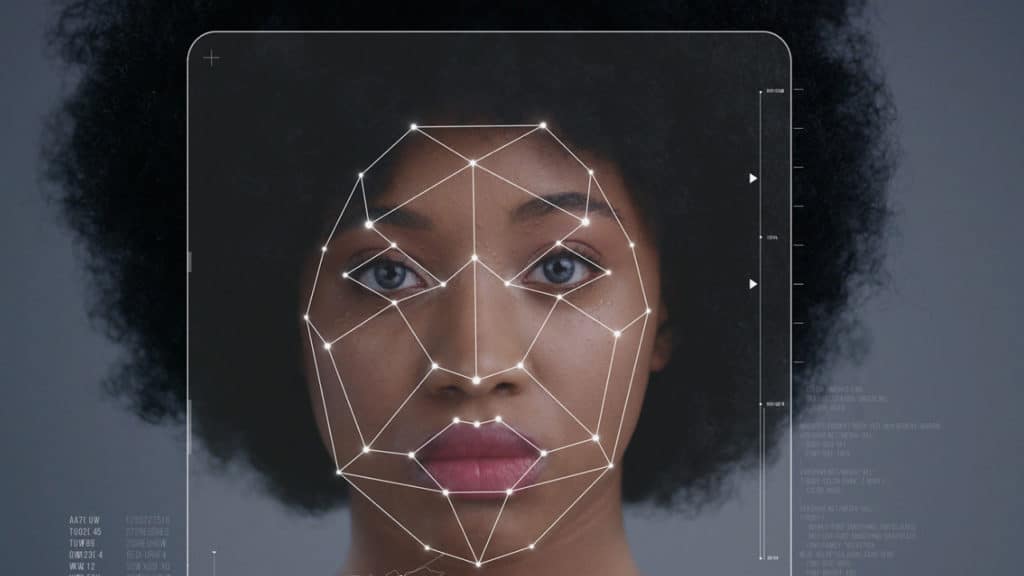When we warn about the growing pervasiveness of facial recognition systems, people often shrug and say, “it’s no big deal if you have nothing to hide.”
The experience of a New Jersey woman illustrates the dangerous flaw in that thinking.
Kelly Conlon went to New York City to enjoy the Christmas Spectacular at Radio City Music Hall with her daughter’s Girl Scout troop. But Conlon was denied entry when facial recognition identified her.
Is Conlon a criminal or a dangerous terrorist?
No.
According to NBC4 in New York, she works for a New Jersey law firm that has been engaged in personal injury litigation against a restaurant under the umbrella of MSG Entertainment, the owner of Radio City Music Hall.
According to a statement from MSG, the company “instituted a straightforward policy that precludes attorneys pursuing active litigation against the Company from attending events at our venues until that litigation has been resolved.”
“They knew my name before I told them. They knew the firm I was associated with before I told them. And they told me I was not allowed to be there,” Conlon told NBC4.
Conlon told the TV station she doesn’t even practice law in New York and has never worked on any case related to MSG.
The “this is a private company, it can exclude whom it pleases” argument aside, the incident reveals the power of facial recognition technology and databases. This should concern everybody given the rapid expansion of government facial recognition systems and the pervasiveness of data-sharing between private facial recognition system providers and governments.
MSG’s use of facial recognition reveals a dangerous fact—the technology isn’t just used to identify “dangerous criminals.” And there is no guarantee government will behave any differently. In fact, it’s almost a certainty that government agencies will use facial recognition to identify and track people who pose no threat to the public.
A 2019 report revealed that the federal government has turned state driver’s license photos into a giant facial recognition database, putting virtually every driver in America in a perpetual electronic police lineup. The revelations generated widespread outrage, but the story wasn’t new. The federal government has been developing a massive facial recognition system for years.
The FBI rolled out a nationwide facial recognition program in the fall of 2014, with the goal of building a giant biometric database with pictures provided by the states and corporate friends.
In 2016, the Center on Privacy and Technology at Georgetown Law released “The Perpetual Lineup,” a massive report on law enforcement use of facial recognition technology in the U.S. You can read the complete report at perpetuallineup.org. The organization conducted a year-long investigation and collected more than 15,000 pages of documents through more than 100 public records requests. The report paints a disturbing picture of intense cooperation between the federal government, and state and local law enforcement to develop a massive facial recognition database.
“Face recognition is a powerful technology that requires strict oversight. But those controls, by and large, don’t exist today,” report co-author Clare Garvie said. “With only a few exceptions, there are no laws governing police use of the technology, no standards ensuring its accuracy, and no systems checking for bias. It’s a wild west.”
Despite the outrage generated by these reports, Congress has done nothing to roll back this facial recognition program.
There are many technical and legal problems with facial recognition, including significant concerns about the accuracy of the technology, particularly when reading the facial features of minority populations. During a test run by the ACLU of Northern California, facial recognition misidentified 26 members of the California legislature as people in a database of arrest photos.
With facial recognition technology, police and other government officials have the capability to track individuals in real-time. These systems allow law enforcement agents to use video cameras and continually scan everybody who walks by. According to the report, several major police departments have expressed an interest in this type of real-time tracking. Documents revealed agencies in at least five major cities, including Los Angeles, either claimed to run real-time face recognition off of street cameras, bought technology with the capability, or expressed written interest in buying it.
In all likelihood, the federal government heavily involves itself in helping state and local agencies obtain this technology. The feds provide grant money to local law enforcement agencies for a vast array of surveillance gear, including ALPRs, stingray devices and drones. The federal government essentially encourages and funds a giant nationwide surveillance net and then taps into the information via fusion centers and the Information Sharing Environment (ISE).
Fusion centers were sold as a tool to combat terrorism, but that is not how they are being used. The ACLU pointed to a bipartisan congressional report to demonstrate the true nature of government fusion centers: “They haven’t contributed anything meaningful to counterterrorism efforts. Instead, they have largely served as police surveillance and information sharing nodes for law enforcement efforts targeting the frequent subjects of police attention: Black and brown people, immigrants, dissidents, and the poor.”
Fusion centers operate within the broader ISE. According to its website, the ISE “provides analysts, operators, and investigators with information needed to enhance national security. These analysts, operators, and investigators…have mission needs to collaborate and share information with each other and with private sector partners and our foreign allies.” In other words, ISE serves as a conduit for the sharing of information gathered without a warrant. Known ISE partners include the Office of Director of National Intelligence which oversees 17 federal agencies and organizations, including the NSA. ISE utilizes these partnerships to collect and share data on the millions of unwitting people they track.
Reports that the Berkeley Police Department in cooperation with a federal fusion center deployed cameras equipped to surveil a “free speech” rally and Antifa counterprotests provided the first solid link between the federal government and local authorities in facial recognition surveillance.
This article was originally featured at the Tenth Amendment Center and is republished with permission.































